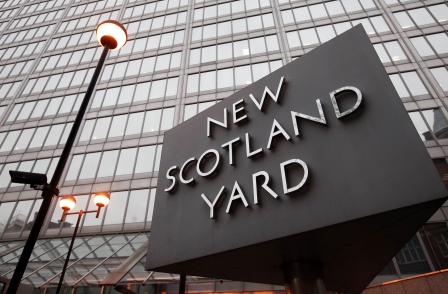
| Year | Number of press leak investigations |
|---|---|
| 2005 | 7 |
| 2006 | 8 |
| 2007 | 2 |
| 2008 | 10 |
| 2009 | 7 |
| 2010 | 10 |
| 2011 | 27 |
| 2012 | 22 |
| 2013 | 23 |
| 2014 | 12 |
| 2015 (to 30 April) | 1 |
The frequency of Metropolitan Police press leak investigations nearly tripled in the year the Leveson Inquiry started, new figures show.
Between 2005 and 2010 there were no more than ten probes carried out by the force in any one year.
However, it 2011 – the year the phone-hacking scandal erupted and the Leveson Inquiry was started – there were 27.
There were then 22 in 2012 and 23 in 2013. The number dropped off in 2014, with 12 carried out, and there was one in the first four months of this year.
Overall, the figures obtained by Press Gazette show that 129 alleged unauthorised disclosures to the media were investigated between 1 January 2005 and 30 April 2015. These allegations were made against 153 members of staff.
Press Gazette began investigating the frequency of press leak investigations last year after it emerged that the Met had secretly accessed the phone records of The Sun – under the Regulation of Investigatory Powers Act – to find the source of the newspaper's Plebgate story.
The majority of police forces across the country have rejected Freedom of Information requests to provide information on the number of unauthorised disclosures they have probed.
But Press Gazette did find, through various official documents, evidence of more than 500 leak investigations since 2005 – including a sharp rise from the start of the Leveson Inquiry.
And when it emerged that the Met Police had conducted 38 probes in the five years leading up to the Leveson Inquiry, a well-placed source told Press Gazette that RIPA would have been used in the "vast majority" of cases.
The Met's figures, which were provided by the force's press office after an FoI was made, confirm this to be the case – but also show a drop off in recent years.
Asked why this might be – whether the Met has relaxed its leak investigations policy, or whether there are fewer leaks – John Twomey, chairman of the Crime Reporters Association, said: ” One explanation for the drop in cases is that there is now very little informal contact between journalists and police as a result of the draconian media policy adopted by forces.
“In the past, ‘unauthorised disclosure’ would simply be a free flow of information between reporter and police – something commissioners were very happy to indulge in.
"Then they called it being open but now it is regarded as a disciplinary matter at least and possibly a crime."
Shown the disclosure document in full, Twomey – who has been a crime reporter at the Daily Express since 1987 – added that it was "reveaing that two-thirds of outcomes were ‘no case to answer or unsubstantiated’".
He said: "That may say something about how they define ‘unauthorised disclosure’. I suspect the threshold is pretty low.”

Overall, allegations against 96 of the 153 staff accused of leaking were found to be unsubstantiated – or it was found that they did not have a case to answer.
Some 29 of the staff did have cases substantiated against them, or had a "case to answer".
Four were filed under "local resolution", the case against one was discontinued, another was given a dispensation and two were disapplied.
In total, 11 of the allegations against staff members were withdrawn, and nine were ongoing cases at the time of disclosure.

Excepting these nine, 114 of the 144 officers had no action taken against them.
Of the remaining 30, 19 had formal action taken against them – with 14 dismissed – two had a "discussion" or were given "words of advice", one was filed under "learning lessons", five had "management action" taken against them and one was given a "written warning". Two were filed under "retired/resigned".
Email pged@pressgazette.co.uk to point out mistakes, provide story tips or send in a letter for publication on our "Letters Page" blog
